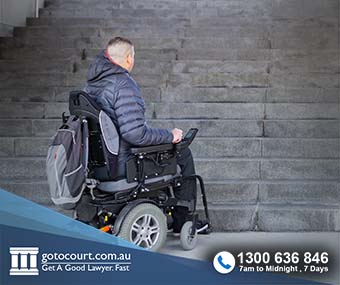Consumer Claims (SA)
Consumer claims are disputes about contracts for the supply of goods or the provision of services. In South Australia, there are several different agencies that deal with consumer claims. These include the Consumer and Business Service (CBS), the Telecommunications Ombudsman and the Energy and Water Ombudsman. This page deals with consumer claims in South Australia.
Legislation
Consumer claims in South Australia are regulated by the Competition and Consumer Act 2010. The Fair Trading Act 1987 also provides some further protections for consumers and sets out codes for specific industries such as motor vehicle insurance and short term rental accommodation.
Consumer guarantees
The Australian Consumer Law operates to protect consumers from misleading and deceptive, unconscionable and unfair conduct by businesses and service providers. One of the ways it does this is by implementing consumer guarantees.
A consumer guarantee is a guarantee that must be offered by all business and service providers on products that they hire, lease, or sell for under $40,000 irrespective of any other warranty on the product or service. For products hired, leased or sold that are over $40,000.00, the consumer guarantee applies if the goods or services are bought for household or personal use.
Consumer guarantees include:
- the right to a refund, replacement or repair when a product is faulty or not fit for the purpose for which it was sold;
- a right to the cancellation of a service that does not meet the description provided by the salesperson or in promotions or advertising; and
- the right to a remedy when a service was not performed with proper care and skill.
Consumer and Business Services
The office of Consumer and Business Services was established to help consumers understand their rights under the Australian Consumer Law and to assist people to negotiate with businesses when a consumer claim arises.
If you have a problem with a business or service provider you can phone, email or visit the CBS office for consumer advice. In order for CBS to assist you, you will need to provide them with the following information:
- your full name;
- the business or service provider’s name and location; and
- the details of your complaint.
You can also report a business or service provider to the Consumer and Business Service without requesting advice or assistance by contacting the CBS reporting line on 131 882. For example, you can report an unsafe product or an unlicensed tradesperson.
If your complaint cannot be resolved, you can request that a CBS representative to become involved in negotiations. In order for this to occur, you must first ensure that:
- the goods or services are covered by a consumer guarantee
- you have proof of purchase
- you have contacted the business or service provider and made a genuine attempt to resolve the matter
- you have kept a record of all contacts with the business or service provider.
Jurisdiction
If negotiations fail, a consumer claim can be initiated in court against the business or service provider. The court where the claim should be filed depends on the amount of money or the value of the goods involved in the dispute.
For disputes involving less than $12,000, a minor civil action can be commenced in the Magistrates Court.
Disputes involving between $12,001 and $100,000 are commenced in the Magistrates Court’s general claims division.
Claims involving over $100,000 are dealt with by the District Court.
Making a consumer claim in the Magistrates Court
Before commencing legal action in any court, a letter of demand should be sent to the other party. This is a formal demand for payment or other resolution by a specified date. The letter of demand should include all the details of what occurred and be accompanied by supporting documentation such as receipts and previous correspondence.
A civil claim can be lodged electronically via this site by completing a Form 1S Statement of Claim.
The claim must then be served on the other party. The other party may respond by paying the amount claimed, by filing a defence, or by filing a defence or counterclaim. If the other party does not respond, the plaintiff can seek a default judgment.
If the complaint is contested, it will proceed to a directions hearing, conciliation conference and then to a final hearing.
Complaining to an ombudsman
If a person has a complaint about the supply of electricity, water or a telecommunications service in South Australia, they should first try to resolve the situation directly with the provider.
If a resolution cannot be reached, the consumer can complain to the Energy and Water Ombudsman or to the Telecommunication Industry Ombudsman.
Remedies
The remedies that are available for a breach of consumer law depend on the nature of the problem, the amount that was paid and how much time has passed since the purchase.
These remedies may include:
- refund;
- repair;
- replacement or exchange;
- compensation; and / or
- cancellation of the contract.
If you require legal advice or representation in any legal matter, please contact Go To Court Lawyers.








